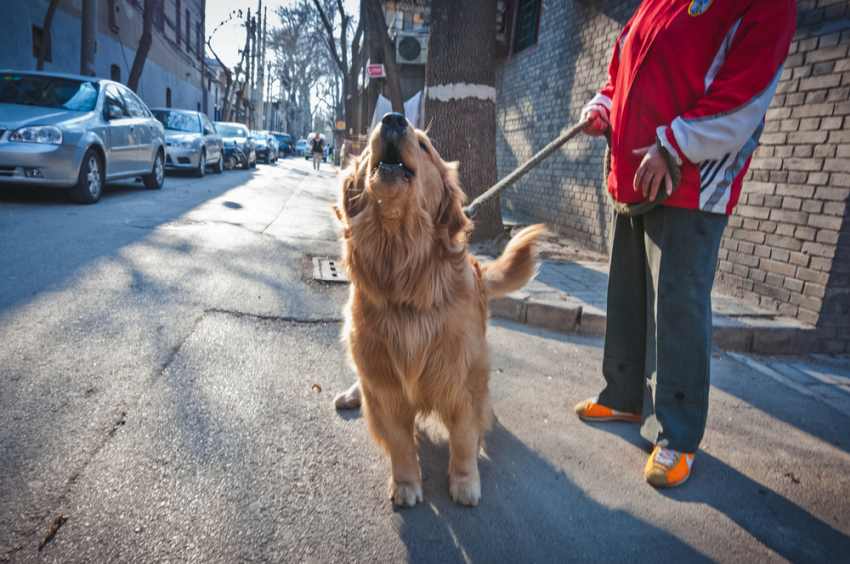Car barking is a common issue many dog owners face, causing stress and embarrassment. This behavior can be disruptive and potentially dangerous, whether it’s incessant barking at passing cars, people, or other animals.
However, you can help your furry friend overcome this habit with the proper training techniques and consistent effort. In this guide, we’ll explore how to stop car barking, why car barking occurs and why positive reinforcement training is effective, and we’ll provide step-by-step instructions on how to address this behavior.
Why is Training Important?
Understanding the underlying reasons for your dog’s car barking is crucial in addressing the behavior effectively. Dogs may bark at vehicles due to fear, territorial instincts, excitement, or simply because they’ve learned that it gets attention. Regardless of the cause, allowing this behavior to persist can lead to several negative consequences:
Safety Concerns:
Unrestrained barking can distract drivers and potentially cause accidents.
Neighborhood Disruption:
Continuous barking can disturb neighbors and lead to complaints.
Stress for the Dog:
Barking excessively can indicate stress or anxiety in your dog, which can impact their overall well-being.
Positive Reinforcement Training:
Positive reinforcement training is a highly effective and humane approach to modifying your dog’s behavior. Unlike punishment-based methods, which can create fear and anxiety in dogs, positive reinforcement rewards desired behaviors and encourages your dog to repeat them.
Here’s why positive reinforcement is the preferred method to stop car barking – barking at passing cars:
Encourages Desired Behavior:
By rewarding your dog when they remain calm and quiet around cars, you’re reinforcing the behavior you want to see.
Strengthens the Bond:
Positive reinforcement enhances the bond between you and your dog, as it relies on trust and cooperation rather than fear.
Long-lasting Results:
Studies have shown that positive reinforcement methods lead to more enduring behavior changes than punishment-based techniques.
Step-by-Step Training Guide: Stop Car Barking
Now that we understand the importance of positive reinforcement training let’s delve into the steps you can take to help stop your dog from being a car barker:
Identify Triggers:
Pay attention to the specific triggers that cause your dog to bark at cars. Is it the sound, movement, or proximity of vehicles?
Desensitization:
Gradually expose your dog to cars in a controlled environment, starting from a distance where they remain calm. Use treats or toys to create positive associations with cars.
Counter-conditioning:
When your dog sees a car, redirect their focus onto you using a command like “look” or “watch me.” Reward them generously for complying with the command and remaining calm.
Practice in Real-life Settings:
Once your dog is comfortable with cars in a controlled environment, practice the same techniques during walks or when vehicles pass by.
Consistency is Key:
Be consistent in your training efforts and patient with your dog. Remember that behavior change takes time and repetition.
Seek Professional Help if Needed:
If your dog’s car barking persists despite your efforts, consider seeking guidance from a professional dog trainer or behaviorist.
Conclusion:
Car barking can be a challenging behavior to address, but with patience, consistency, and positive reinforcement training, it’s possible to help your dog overcome this habit. Understanding the underlying reasons for the behavior and employing humane training methods can strengthen your bond with your furry companion while ensuring a harmonious relationship with your neighbors and community.
Remember, every dog is unique, so tailor your approach to suit your dog’s individual needs and celebrate each small victory along the way. Happy training!

Safety First: Why Teaching Your Dog to Ignore Passing Cars is Essential
As a responsible pet owner, addressing and modifying your dog’s behavior, especially when it comes to excessive barking at passing cars, is not just about convenience; it’s about safety, well-being, and harmonious coexistence within your community.
Safety Concerns:
Uncontrolled barking at passing cars can pose significant safety risks for your dog and others. A distracted driver may swerve or brake suddenly, leading to accidents or injuries. Moreover, if your dog is off-leash and runs towards cars while barking, it could result in a collision or even worse outcomes.
Noise Pollution and Disturbance:
Continuous barking disrupts the peace and quiet of your neighborhood and affects the quality of life for those around you. Excessive noise from barking dogs can lead to complaints from neighbors, strained relationships, and even legal issues in some cases.
Stress and Anxiety for Your Dog:
Dogs that bark excessively at passing cars may be experiencing heightened levels of stress and anxiety. This constant state of alertness can take a toll on their mental and emotional well-being, leading to behavioral issues and overall unhappiness.
Reinforcing Negative Behavior:
Allowing your dog to continue barking at passing cars without addressing the behavior can inadvertently reinforce it. Dogs thrive on routine and consistency, so every instance of barking without consequences reinforces the idea that it’s acceptable behavior.
Building a Positive Reputation:
Being a responsible pet owner means respecting your neighbors and community. By training your dog to stop barking at passing cars, you improve your dog’s behavior and contribute to a positive reputation as a conscientious member of your neighborhood.
Enhanced Bonding and Communication:
Training your dog to stop car barking at passing cars provides an opportunity to strengthen your bond and communication with your furry companion. Positive reinforcement builds trust and understanding between you and your dog, leading to a more harmonious relationship.
In summary, training your dog to stop car barking is not just about eliminating a nuisance behavior; it’s about promoting safety, fostering community harmony, and enhancing the well-being of your beloved pet. By addressing this behavior with patience, consistency, and positive reinforcement training, you improve your dog’s quality of life and contribute to a more peaceful and enjoyable living environment for everyone involved.
Discover one of the top-rated positive reinforcement training courses for both novice and seasoned dog owners – The Online Dog Trainer. Explore it now by clicking on the banner below – and it’s completely free!
Positive reinforcement training for dogs is an empathetic and highly successful method that has revolutionized our approach to canine education and interaction. By prioritizing positive experiences and reinforcing desired behaviors, this approach not only cultivates obedience and good manners but also deepens the bond between dogs and their owners. As our understanding of animal behavior advances, positive reinforcement underscores the importance of kindness and empathy in nurturing a harmonious bond between humans and their loyal companions.
Related Articles:
Everything You Need to Know About Dogs and Barking
How To Stop Your Dog Barking – in general
Understanding the Challenges of Dog Training: The Importance of Effective Training for Dog Owners

